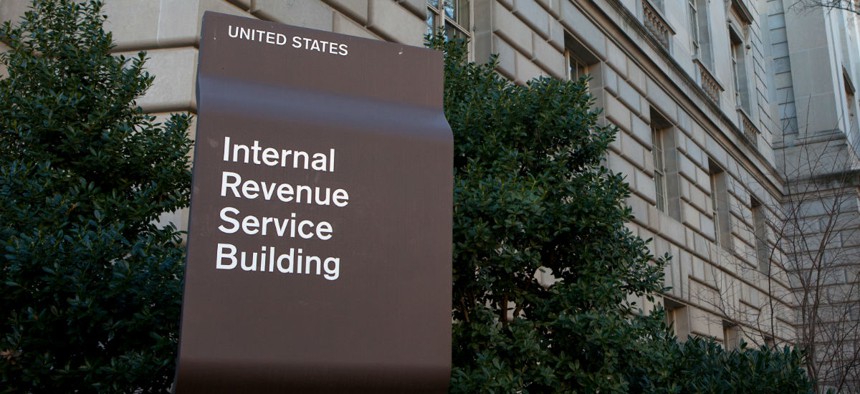
Treasury Watchdog Rejects Charges of Politicized Analysis of Tax Bill
IG responds to Sens. Warren and Wyden, saying career officials worked normally with Hill.
With the Republican-passed tax cut law now kicking in, the Treasury Department’s inspector general on Thursday rejected accusations from two Democratic senators that the agency’s career economic analysts had tailored their work to the political goals of Secretary Steven Mnuchin.
Citing media reports in November, Sens. Elizabeth Warren, D-Mass., and Ron Wyden, D-Ore., had separately requested an inspector general look at the role of Treasury’s Office of Tax Analysis in light of public statements by Mnuchin that such career staff “were working round the clock running scenarios” to document the economic stimulus effects of the pending tax-cut legislation.
After interviewing officials in that Treasury office, the watchdog—in a just-released Jan. 5 memo from Counsel Rich Delmar to Inspector General Eric Thorson—found no reason to conclude that any of the career staff’s actions were “contrary to law, an abuse of authority or otherwise improper.”
The senators and a foundation had asserted that Treasury managers had removed a 2012 tax study from the department’s website “for political purposes” and were deviating from “standard protocol” for tax analysis. They also suggested that the Treasury office of 90 lawyers and economists was being excluded from the tax reform process going on in Congress.
The Office of Tax Analysis “has not been shut out of the tax reform process,” according to James Mackie, that office’s director. “We have played a major role throughout the process,” he told the IG, challenging some, but not all, of the anonymous statements from insiders published in the press. A previous employee who complained about politicization was not present at OTA in the relevant time period, Mackie said. The OTA takes no position on the impact estimates used by Congress from the Joint Tax Committee, he said, but those estimates “are widely considered to be reasonable.”
The IG determined that there is no “standard protocol” and that the work done in 2017 under the Trump administration was similar to that done under other administrations.
The career staff were “fully engaged in providing analysis of legislative proposals and reviewing outside inputs such as assumptions about GDP growth,” the IG concluded. One reason they never released a public model is that they worked directly with congressional staff. The career staff had, however, “gotten the impression as the legislative drafting process picked up in the second half of the year that the congressional people were less interested in getting OTA’s input.”







